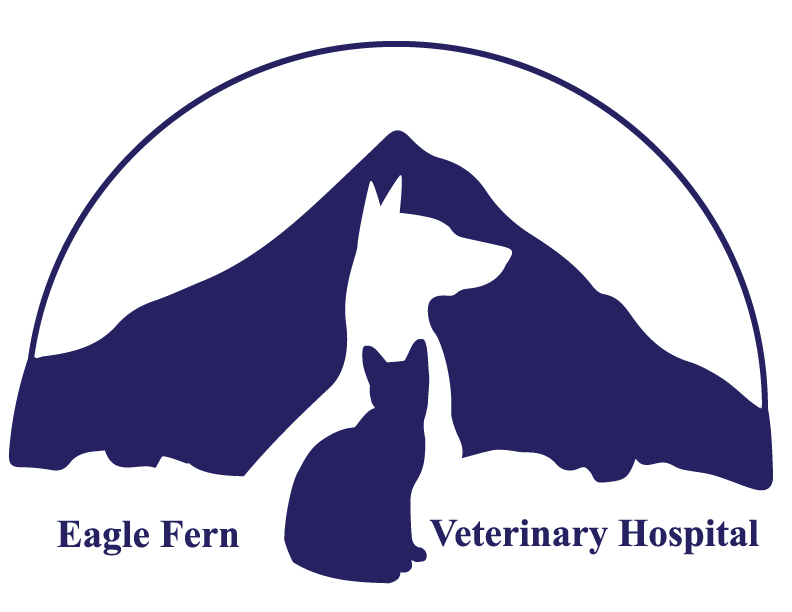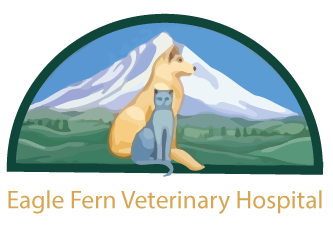|
 Arthritis Arthritis
Is your dog or cat suffering from arthritis pain? If your pet shows one or more of the following signs arthritis treatment will help your pet have a better, more active life:
- Less active, rests more, plays less - Reluctance to walk, run, climb stairs, or jump
- Soreness or stiffness after physical activity - Limps or moves with an altered gait
- Difficulty rising, sitting or squatting to eliminate - Prefers lying down to sitting or standing
- Less grooming, unkempt appearance
- Struggles when picked up or avoids owner contact
- Changes in urination or defecation behavior resulting in litter box accidents, incontinence, or constipation
Arthritis is a very common condition in our older pets - dogs and cats. Risk factors for arthritis include being overweight, large or giant breed dogs, older than 5 years of age, history of joint trauma or hip dysplasia. A recent study looking at the incidence of arthritis in cats found that 90% of geriatric cats had arthritis in their hips, knees, elbows or spine. Because of the cat's reluctance to show evidence of pain and not as active lifestyle of a dog, owners may be unaware that their cat is having a problem. It may be reluctant to jump on the furniture or counters. If water and food is kept on a high surface, the older cat is at risk for dehydration and weight loss.
If you suspect your pet may have arthritis, we recommend an exam, defining the pet's problems, radiographs of the joints and spine, blood work, and a urinalysis. To minimize side effects of arthritis medication, blood work and urinalysis should be performed to check liver and kidney function prior to starting medication and a recheck in 2 weeks then every 6-12 months.
Treatments for arthritis:
- Weight loss. Every extra pound puts stress on the joints and limits a pet's mobility. Hill's R/D and M/D diets have been very successful for weight control.
- Cosequin or Synovi Products are quality controlled glucosamine/chondroitin sulfate products that help improve joint health and lubrication. Foods containing glucosamine do not have therapeutic levels. Many OTC glucosamine supplements use substandard or low levels of ingredients.
- Anti-inflammatory NSAID medication to reduce pain associated with movement. Metacam has been used safely and successfully to treat arthritis in both dogs and cats. Rimadyl and Deramaxx are other NSAID medications used in the dog. NSAIDs are given daily until improvement is seen then every 48-72 hours. The lowest dose that keeps the pet comfortable should be used. If vomiting or poor appetite should occur, the drug should be stopped and the office contacted.
- Combination drug approach to pain. By using only one class of pain reliever, ie. NSAIDs, we may not adequately relieve a patient's pain. In using a combination drug approach, the pain relief may be additive, allowing lower doses of individual drugs and lessening the drug side effects. We have had good success in adding medications such as Tramadol, Amantadine, and Gabapentin to NSAIDs therapy.
- Adequan is an injection that helps stop the cartilage from breaking down and supports the repair process in the joint.
- Hill's J/D, the new joint diet, has shown to improve arthritis in 80% of the dogs. J/D contains EPA, an omega-3 fatty acid and glucosamine/chondroitin to maintain joint function; and L-carnitine to maintain optimum body weight.
- A physical therapy rehabilitation plan can increase patient strength and fitness, manage the pet's body weight, implement a home exercise program, use walking assistance devices and optimize the home environment. We are fortunate to have a pet rehabilitation practice, www.backontrackvetrehab.com, located in Portland. They can provide advanced physical therapy including hydrotherapy, underwater treadmill, and ultrasound; and develop a home care program. Home care involves cold and heat therapy, stretching, massage, exercise, and modification of the home environment.
- Acupuncture can help give relief from arthritis and chronic pain. Dr. Becky Jester at EFVH is now certified to offer this service.
ARTHRITIS TREATMENT PLAN
1) Physical, orthopedic, neurological exam:
2) Radiographs of joints and spine:
3) Bloodwork, urinalysis (repeat in 2 weeks, then every 6-12 months):
4) Report any current medications your pet is on ie. aspirin, glucosamine:
5) Define impairment degree as compared to when your pet was normal. List 5 mobility problems that you find your pet is having difficulty with. Examples are walking, running, getting up, grooming, difficulty moving after rest, difficulty finding a comfortable position, climbing stairs, descending stairs, getting into car, jumping up or down, walking on smooth surfaces, use of litter box, fecal or urinary incontinence.
|
Mobility Problem
|
No Problem
|
Little Problem
|
Quite Problematic
|
Severe Problem
|
Impossible
|
|
|
|
|
|
|
|
|
|
|
|
|
|
|
|
|
|
|
|
|
|
|
|
|
|
|
|
|
|
|
|
|
|
|
|
6) Start medication:
**Contact the clinic if you should notice any vomiting, soft stools, diarrhea, inappetance or lethargy.
7) Start on Hill's R/D or M/D for weight loss or Hill's J/D for dogs for joint health:
8) Start physical therapy at home or at Back on TrackPetRehabilitationCenter:
9) Return for re-evaluation and follow-up blood work in 2 weeks.
10) Return for exam, blood work and urinalysis every 6-12 months.
11) Contact the office if your pet should experience any worsening of its condition. Additional therapies may be available to increase your pet's comfort level.
Our goal is to give you back a happy, active pet!
| 
